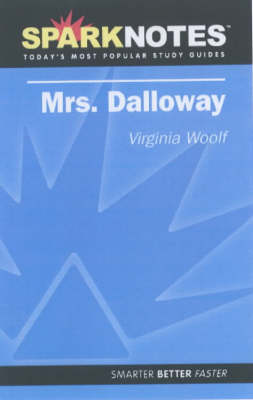Reviewed by gmcgregor on
There's a parallel story going on as well, that of Septimus Warren Smith. Once an idealistic student studying Shakespeare, he joined up to fight in World War I without really thinking about what he was getting into. He ended up with what we'd probably now diagnose as PTSD, and when he was sent to the villa of an Italian hatmaker to recover from his shellshock, impulsively married Lucrezia, the hatmaker's lively daughter. Although the pair has been married for several years by the time the book takes place, they have not yet had children, much to Rezia's chagrin. Septimus' mental state, always delicate, has taken a turn for the worse and his wife is desperately trying to find him adequate help. Although the stories at first seem disconnected, it becomes obvious that Clarissa and Septimus are foils for each other. Each is reflecting back on their lives and choices and the consequences of decisions long-since made, and teetering between hope and despair.
This is one of those literary classics that I'm glad I came to outside of the typical "high school English" setting. Like The Great Gatsby (which I hated when I read it in high school, but loved once I read as an adult), it's steeped in themes of remembrance and regret and reflecting on the choices made or not made that have shaped your path. And I'm sure I would have been disgusted that Clarissa had decided to marry steady, boring Richard who struggles to even just tell her he loves her because he's so uncomfortable with feelings instead of Peter, who struggles to contain his wellsprings of emotion and with whom she clearly has a more natural chemistry. But adult me understands that sparking passion isn't the same thing as love, and that Peter has not been able to make a steady relationship last, while Richard and Clarissa are still married, indicates that her instincts had merit.
Although it's only about 200 pages long, Mrs. Dalloway is a dense novel that I read at about half of my usual pace. The narration skips around, following mostly Clarissa and Septimus but also Rezia, Richard, Peter, and others. As a book focused on memory, it's presented in a more stream-of-consciousness style and demands close attention. It's one of those books that you read and immediately know you're going to get more out of every time you go back through it because there's a lot there, and I'm sure this is a book I want to revisit. Woolf's writing is lovely, not flowery or excessive but still packed with powerful themes and emotions. Since I wasn't an English major, this is actually the first time I've read her work and I walked away wanting to read more. I'd recommend this book to everyone.
Reading updates
- Started reading
- 4 June, 2017: Finished reading
- 4 June, 2017: Reviewed
